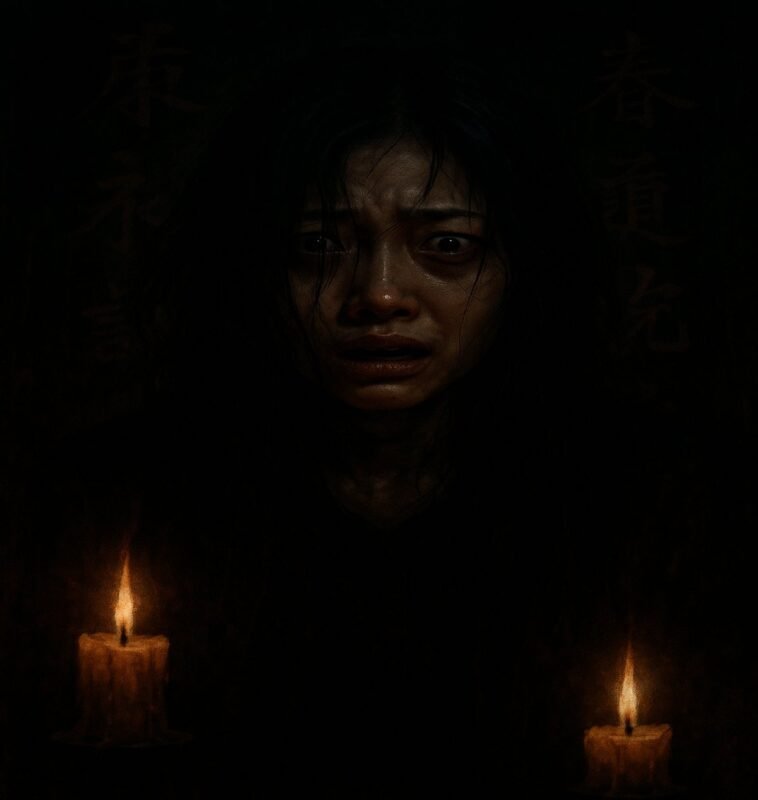Incantation True Story: The Haunting Reality Behind Taiwan’s Most Terrifying Horror Film

The Rise of a Horror Phenomenon
When the Taiwanese horror film Incantation arrived on Netflix, it quickly earned a chilling reputation as one of the most terrifying movies ever made. Its found-footage style and interactive elements, which invite the audience to chant along, created a uniquely immersive and unsettling experience. The film’s opening claim that it is “based on a true story” left viewers with a lingering question: how much of this nightmare is real?
The movie follows a mother, Ronan, who believes her daughter is afflicted by a deadly curse she unleashed years ago. As she documents her desperate attempts to save her child, the story draws the audience deeper into a world of forbidden rituals and terrifying consequences. This article delves into the haunting reality that inspired Incantation, separating the horrifying facts from the movie’s masterful fiction.
The Real-Life Tragedy Behind the Film
The incantation true story is rooted in a tragic incident that occurred in Kaohsiung, Taiwan, in 2005. A family of six, surnamed Wu, became convinced that they were possessed by various Chinese folk deities. This shared belief led them down a dark path of ritualistic violence and self-harm that ended in an unthinkable tragedy.
It began when the youngest daughter claimed to be possessed by the “Third Prince.” Soon after, the entire family embraced similar delusions, each member believing they were inhabited by a different god, such as the “Jade Emperor” and the “Queen Mother of the West.” This collective psychosis spiraled out of control over the course of a month.
A Descent into Mass Hysteria
Driven by their delusions, a Wu family engaged in increasingly disturbing acts. They attacked one another with sticks and crutches, burned each other with incense, and even consumed feces and urine in a desperate attempt to expel the supposed evil spirits from their bodies.
This period of intense paranoia and violence reached a devastating climax. The family singled out their eldest daughter, believing she was possessed by a malevolent entity. After weeks of abuse and starvation, she tragically died from multiple organ failure and malnutrition. When they finally brought her to a hospital, the family still believed she was alive, showcasing the profound depth of their shared delusion.
From Reality to Cinematic Horror
Director Kevin Ko used the 2005 Kaohsiung incident as the foundational inspiration for Incantation. He was fascinated by the power of belief and the cultural context of superstition in Taiwan, transforming the raw elements of the real story into a polished horror narrative.
The film adopts the found-footage format to create a sense of authenticity, making viewers feel as though they are witnessing real events. Ko masterfully manipulates the audience by directly involving them in the curse, a key difference from the real story. This interactive element is what makes the film’s horror feel so personal and immediate.
Separating Fact from Fiction
While the core idea of a family descending into madness is based on the incantation real story, most of the film’s iconic supernatural elements are entirely fictional. The central deity, the “Dahei Mother Buddha,” does not exist in any religion and was created for the movie, drawing inspiration from figures in Tantric Buddhism and Brahmanism.
Likewise, the memorable chant, “Hou ho xiu yi, si sei wu ma,” and its accompanying hand gesture were invented for the film. There is no real curse associated with these words or symbols. The movie brilliantly constructs a believable mythology that feels ancient and real, but it is ultimately a work of fiction designed to serve the narrative.
The Cultural Power of Belief
The Wu family’s story, while extreme, highlights the powerful role that folk religion and superstition can play in certain cultural contexts. In Taiwan, the worship of a wide array of deities is common, and belief in spiritual possession is not unheard of. The film taps into this deep-seated cultural understanding of the supernatural.
Director Kevin Ko noted that the concept of things being “better not to approach” is a strong sentiment in Taiwanese culture, and he used this fear of the unknown to shape the film’s narrative. The incantation movie explores the thin, terrifying line between devout faith and dangerous delusion, a theme that resonated deeply with the Wu family’s tragic experience.
Is Watching Incantation Dangerous?
Ultimately, viewers can rest assured that watching Incantation will not place them under any real curse. The film is a work of psychological horror that preys on our fear of the unknown and our willingness to believe. Its power lies not in any real supernatural threat, but in its ability to make us feel like we are part of the story.
The incantation true story is a sad and disturbing case of mass hysteria, but the film that it inspired is a fictional piece of entertainment. The terror it evokes is a testament to its skillful filmmaking, not to any actual demonic power. The curse is only as real as you allow your mind to believe it is.
Last modified: October 21, 2025

